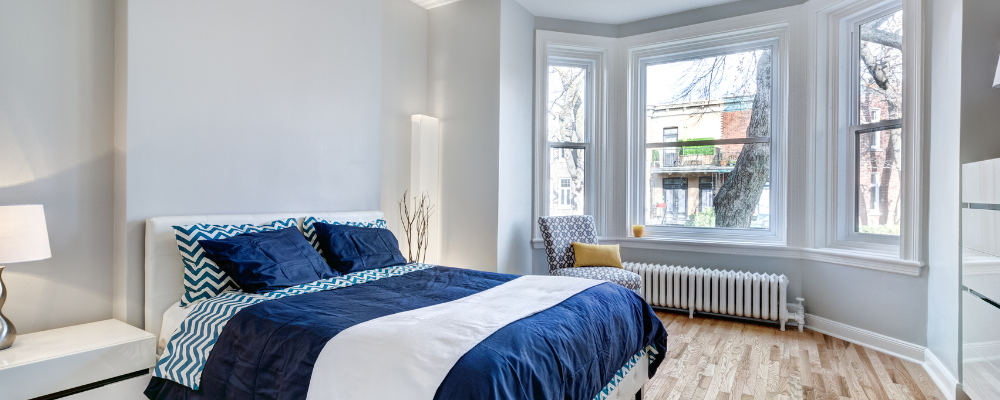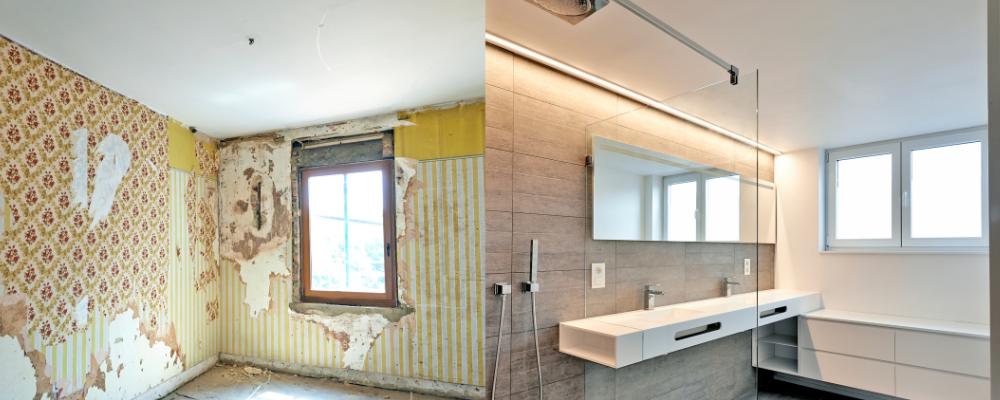The Short Answer
Flipping houses remains a successful real estate investing endeavor, however you may be wondering how to pay yourself when flipping houses once you’ve generated a profit. The basic steps are as follows:
- Create a budget before you begin your house flipping project, and include reasonable estimates of the property purchase, renovation costs and what you’d like to pay yourself.
- Determine the amount you’d like to pay yourself by using the method that best suits your investing strategy. You can link it to the success of the project, or you can look at reinvesting the profits back into other projects. Some house flippers choose to pay themselves between 10% and 30% of the total profits generated.
- Make sure you have a business bank account to pay yourself from. It’s advisable to do this for LLC’s particularly, and to keep your business and personal financials separate.
- Lastly, you can pay yourself via a bank transfer, check, owner’s draw or another method. Keep in mind that you may be subject to federal income taxes, amongst other taxes.
Jump To
Detailed guideline on how to pay yourself when flipping a house
When paying yourself from a house flipping project, it’s important to strike the balance between rewarding your efforts and making sure that your investment remains strong. It’s also important to bear in mind that there can be tax implications that come with paying yourself. Let’s take a closer look at how to pay yourself when flipping houses, bearing in mind that this all depends on your personal situation.

1. Set a budget
Before you begin your house flip, it’s important to create a detailed budget that includes not only the property purchase and renovation costs, but also a reasonable estimate of what you’d like to pay yourself from the proceeds of the sale. Your pay shouldn’t jeopardize the overall profitability of the project, so make sure to factor that into the amount that you decide on. This amount depends on your personal situation and, largely, whether you’d like to reinvest money into the next project or pay yourself a higher amount.
2. Determine your amount
When it comes to the question of how much to pay yourself, there are various factors at play. Your compensation should factor in the opportunity cost, which means that your value to the project in terms of time, effort and skills should be reflected in the amount that you pay yourself. Some house flippers choose to pay themselves between 10% and 30% of the profits of the overall project. However, this isn’t the same for everyone.
Another way of deciding how much to pay yourself is by linking it to the performance of the project. This means the profitability of the house flip determines the amount you will reward yourself with. This can be a percentage of the profit, or a scaled amount, depending on what works best for your needs and investment goals.
Instead of withdrawing all your profits immediately, you may want to consider reinvesting some of it back into your house flipping business. Which means you can use it for your next house flipping project, for example using the proceeds of one house flip to fund the down payment on the next investment property purchase.
Consider whether you’re a full-time or part-time flipper. This may also play a role in determining the amount that you pay yourself because full-time flippers will generally require more of a salary than those flipping houses part time.
3. Get a business account
Having a business account is important, particularly if you have an LLC. A business checking account will allow you to fulfil the EIN requirements of an LLC. However, make sure to shop around for banks as the larger banks may charge higher fees on these accounts.
Using a business account for your house flipping projects and your personal account for your personal finances is a good way to keep your business payments and expenses separate from your personal ones. The question of how to pay yourself when flipping houses revolves around getting a business account to pay yourself from.
4. How to get the funds
Once you’ve decided how much money you will be paying yourself, you can transfer the funds to yourself in whichever way makes sense to your business. You can set up an owner’s draw, write yourself a check, set up a banking transfer or whatever else works for you. However, make sure to mark it as an owner’s pay or distribution, as this will impact your tax.
The tax implications of paying yourself a salary

Regardless of the amount you choose to pay yourself, there are tax implications for income from a house flip. Which means that when you’re looking at how to pay yourself when flipping houses, you’ll need to know about these.
If you are operating your house flipping business as an LLC, you will be taxed on your personal return. Another important tax note is to do with self employment tax. House flips can be subject to self employment tax of up to 15.3% and are taxed at higher income tax rates instead of being subject to capital gains tax.
The intent of a house flip determines the tax that it will be subject to. In other words, whether a home is being flipped to sell or to rent, this forms the taxes it will be subject to. The purchase price also cannot be written off on your tax return until the year the property is sold.
Essentially, when you’re look at how to pay yourself when flipping houses, bear in mind that paying yourself a salary from a house flipping project means that you’re subject to income tax, both federal income taxes and state taxes. If you operate as a sole proprietor or in a partnership, you may be subject to self employment taxes. Self employment tax includes the expenses related to the house flipping project which you can deduct from your taxes, such as the purchase of the property, the renovation project and other business expenses.
Choosing the right business structure is vital for a house flipping venture, as this will impact how your salary is taxed and which tax deductions you can claim. For example, the IRS will classify house flippers as real estate dealers, instead of investors, and this increases the amount of tax they will need to pay on their taxable income.
The tax implications of not paying yourself a salary

Learning about how to pay yourself when flipping houses includes knowing about the tax implications of both paying yourself a salary, and not paying yourself a salary.
Whether you pay yourself a salary or not, flipping houses will result in having to pay capital gains tax. Short-term capital gains tax will need to be paid if you own the property for less than a year. This can range between 10% and 37% depending on the investor’s overall taxable income that year. If you own a property for more than 12 months, you’ll pay long-term capital gains tax which ranges from 0 to 20%, depending on the overall amount earned.
If you don’t pay yourself a salary and leave the profits within the business, this may be treated as pass-through tax. This means the profits “pass through” the business entity to the owners and are reported on their individual tax returns. This is typically subject to individual ordinary income tax rates, which means its taxable income.
However, investors would save on self employment taxes, as retained profits in the business are not subject to self employment taxes. This reduces your immediate tax obligations related to these amounts.
The good news is that, even without a salary, you may still be able to get tax deductions from business expenses related to your house flipping activities. In other words, retaining the profits in the business may also reduce the tax rates and be a more efficient tax strategy but this depends on your personal circumstances.
How to minimize taxes when flipping a house

When you’re looking at how to pay yourself when flipping houses, here are some tips for minimizing the house flipping taxes you’re subject to:
- Operating under a business entity, such as an LLC. This can help offset certain taxes and can even reduce the amount of self employment tax if you operate under an S Corporation for example. This also means that you’ll pay less in self employment tax if you give yourself a salary and take some of the profits as distributions. Remember, self employment tax is a large consideration when it comes to flipping houses and minimizing this can be a significant saving.
- Flipping your own home. By flipping the home that you live in, or doing a live-in flip, you can reduce your house flipping taxes. Section 121 exclusion will allow you to exclude up to $250,000 of the gain on your house flipping taxes. However, the house you’re flipping needs to have been your residence for at least 2 years.
- Keep a record of your business expenses. Some of your business expenses may be tax deductible, which means that you’ll need to keep a record of them. For example, loan interest, legal and accounting fees and travel expenses. Other expenses that you can deduct, known as “capitalized expenses” include the cost of buying the home, renovation labor costs, insurance and more.
The best ways to use the profit generated from a successful house flip
Completing your first house flip is a great way to get onto the real estate investing train and start making money. Once you’ve discovered how to pay yourself when flipping houses, here are some of the ways you can use the profit you have generated from a successful house flip:
- Reinvest in new projects: You can leverage the profit you’ve generated to reinvest in new real estate projects and continue growing your real estate portfolio. So, when looking at how to pay yourself when flipping houses, this is a useful strategy to consider for your profits.
- Pay off debt: Using your profits from flipping a house for paying off debt can be a wise financial decision. Particularly if the debt is creating a significant financial liability for you. This will help you increase your capacity for future projects to continue investing.
- Professional development: You can invest in furthering your own skills and knowledge. This includes attending real estate workshops, conferences, or courses to stay abreast of industry trends and improve your expertise. Continuous learning is a key to long-term success.
- Upgrade existing properties: If you already have investment properties in your portfolio, you can use the profits generated from a house flip towards upgrading these properties. From small renovations to large improvements, these upgrades can increase rental income or resale value of the properties.
- Emergency fund: Using your profits to create or bolster an emergency fund can be a smart financial move for those who want to be prepared for unexpected market changes or unforeseen expenses.

